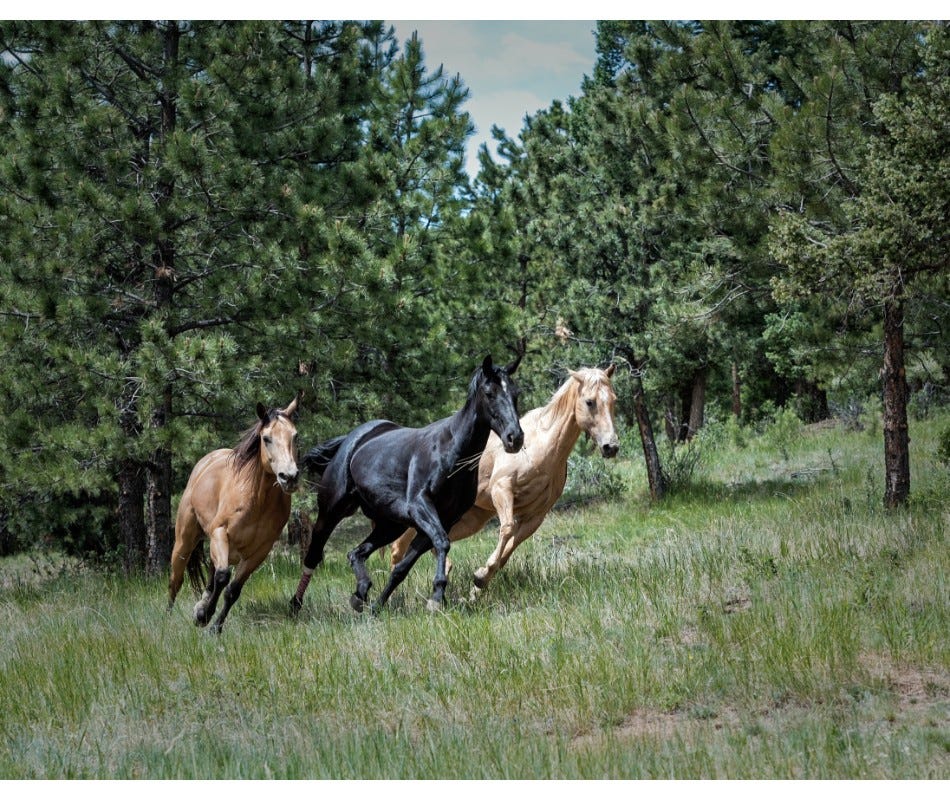We use cookies to make your experience better. To comply with the new e-Privacy directive, we need to ask for your consent to set the cookies. Learn more
Ten Tips for Optimum Digestive Health in Horses
1. Increase the time for pasture turnout.
Ultimately, the key to maintaining a healthy digestive system for your horse is to go with nature as much as possible. Naturally, horses love to spend time grazing as their digestive system is designed to handle foods at a frequent rate. Horses that are turned out more often are resistant to colic. Horses those are restricted on turnouts can be susceptible to laminitis.
2. Feed your horse top quality hay.
Forage components are important in a horse’s diet. Quality hay is determined by various factors including the maturity stage at which it was harvested, the leafiness, color, absence of foreign materials. Feeding your horse quality hay is like investing money on it, as you will not get to call the veterinarian very often to complain about digestive upsets.
3. Don’t let your horse go on an empty stomach.
Gastric ulcers are common in horses today, and this occurs mostly because of feeding practices which restrict a horse to one or two large meals a day. This leaves the stomach pretty much empty for most of the time. Feeding it sufficient hay, that enables continuous consumption, helps in keeping the stomach full for longer periods of time.
4. Add calories to your horses without involving too much carbs.
Oil is a good source for calories; it is readily absorbed by the body and does not contain starch or sugar. It’s a safer alternative to adding calories to your horse’s diet compared to feeding it grain. Corn or vegetable oils are commonly preferred as caloric sources for horses requiring to gain weight and energy.
5. Incorporate less grain to the horse’s diet.
Grains are rich in starches and sugars that when consumed at high quantities, they can cause laminitis or colic. Performance horses today are usually fed with high-grain feeds to serve as energy source. The horse’s digestive system is designed to digest grass and not sugar; if the horse gets sugars and starches, it can have a great impact on the normal gut flora. Microorganisms that digest starch and sugars will multiply at a rapid rate and more gas will be liberated in the process.
6. Feed hay first, followed by grain.
The horse’s stomach is small and the food travels through very quickly. When feeding both hay and grain simultaneously, the horse will instantly feed on grain first since they prefer it over hay. What happens here is that the grain will be pushed along the digestive tract too quickly before it is even completely digested. As a result, starches and sugars remain unabsorbed and this can cause digestive problems. Always feed hay first before giving your horses grain.
7. Provide constant water access. Horses need water.
Chewing and digesting forage requires fluid. On average, a horse drinks 7 gallons (26.5Litres) of water a day. Water facilitates proper flow of food along the digestive tract by keeping the ingesta moist. Make sure the water you provide has the right temperature and is always clean.
8. Help your horse avoid ingestion of too much sand.
Generally, feeding off the ground makes a horse lower his head to reach for the food and in this way, gravity is in action by draining dust-containing fluids out from his sinuses and nose. But if your feeding area is sandy, you may need to use a hay feeder so your horse does not ingest too much sand, which can be a cause for a health problem known as sand colic.
9. Let him have plenty of exercise.
Horses need to move around a lot. Contractions of the horse’s smooth muscles are aided by movement. If your horse is stalled, allow him to run around even for only 20 minutes each day.
10. Protect the balance of the gut flora.
Horses need good microbes to do the work of digestion. These microorganisms are also needed for certain nutrients. Stress, transportation, and antibiotics are some of the factors that disrupt the balance of the gut flora. To replenish these microbes, digestive aids can come in very useful. Equine probiotics are usually added to the horse’s feed. They contain the same microbes that help with the digestion process.
-

Horses need to move around a lot








Validate your login